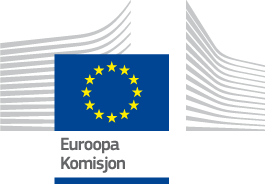

Good Practice Project
Inspired by the well-known, land-based garden allotments concept, setting up gardens at sea and creating the Sea Garden Association has helped inject new life into Ebeltoft harbour and promote local coastal food and marine culture.
As fishing activities declined in the Ebeltoft harbour, a voluntary association, 'Sea gardens in Syddjurs', was set up in 2011 to create the conditions for running a sustainable sea garden near the port area where local community members could grow shellfish and seaweed on a small-scale. The aim was to restore life to the fishing port, maintaining its authentic feel, as well as contributing to a cleaner marine environment thanks to these small-scale aquaculture activities which have helped to improve water quality.
The association included fishermen, a fishmonger, a restaurant owner, a photo journalist, the environmental manager of the municipality, a biologist and other dedicated local citizens. The sea gardens were set up in 2013 and the facilities and equipment, including a boat to reach the gardens, were made available to the gardeners who themselves could decide what and how they wanted to grow in their part of the garden. Active cooperation with other associations, institutions and businesses has helped maximise the positive impacts of the sea garden and develop and promote related cultural activities.
The project has brought new life into the harbour area with approximately 80 gardeners growing mainly mussels, but also seaweed and oysters, and amongst whom an increasing networking dynamic has taken root. The sea garden has also contributed to a cleaner marine environment and resulted in the creation of a new “super food” company, which manufactures health supplements from seaweed.
The project has already been replicated in other areas in Denmark and its members played an active role in providing its knowledge and experience for the creation of these new sea gardens. FLAGs in many areas can consider similar sorts of sea gardens to revitalize port areas, in particular where the local public authorities are open to supporting such community projects.
Initially, the project was thought to be both a business-oriented and a social project making it possible to grow one’s own sea food. Due to strict approval requirements, however, it finally became primarily a socially oriented project. Lessons for other areas wishing to set up a sea garden include the importance of identifying and entering into an early and respectful dialogue with other stakeholders interested in using the same marine area; and the importance of linking up with an existing gardener association that can share its knowledge.
Local public funding:
The local FLAG supported the project idea, though it was ultimately funded through other sources, costing a total of €40 000 euros. The funds came mainly from the municipality of Syddjurs, as the project contributes positively to the municipality's environmental health and quality of life.
| Total project cost | €40 000 |
|---|---|
| Timeframe of implementation | From Jan 2011 to Dec 2013 |
|---|---|
| Sea Basins |
|
| Type of area |
|
| Theme |